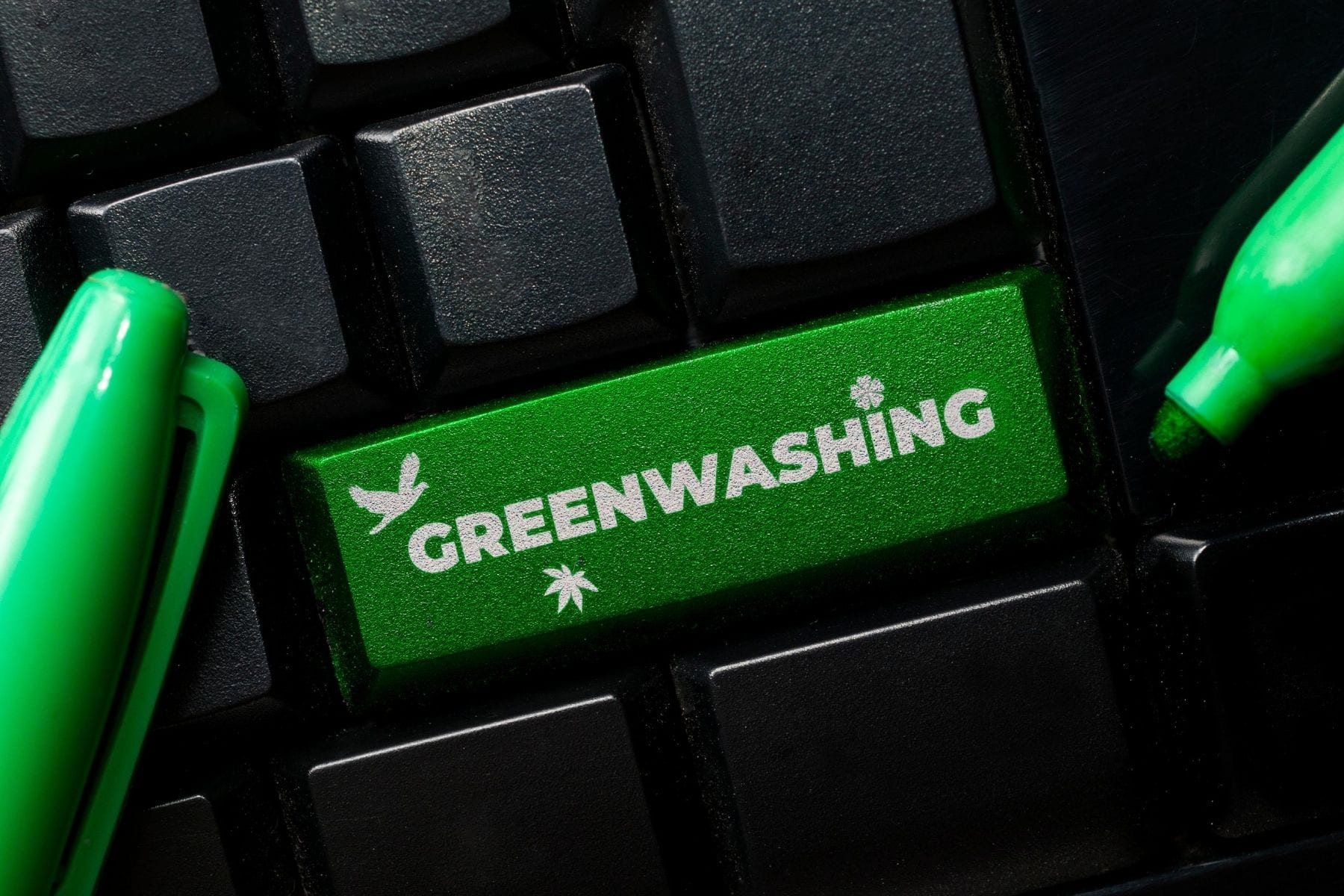
Are you trying to live sustainably?
One of the first steps is to exclusively shop for sustainable and eco-friendly products. This usually entails researching how products are made before breaking out your credit card. However, companies are picking up on the habits of eco-conscious consumers and have discovered a way to cash in on this trend through greenwashing.
What is greenwashing?
Greenwashing is a marketing tactic companies use to upcharge you for so-called “green” products. The big wigs and CEOs of the world understand people are becoming more discerning when it comes to the products they purchase. So of course, they’ve found a way to meet this new consumer need by changing their packaging to appear more eco-friendly—that is, without actually changing the way they produce or source the materials that make their products.
What’s an example of greenwashing?
Let’s say you’re looking for eco-friendly laundry detergent. You find a bottle that that has packaging donned with flowers, leaves, and has a tagline like “The Earth’s Favorite Detergent.” You might think you’ve found what you’re looking for—but then you look at the ingredients list.
Here you find the product contains parabens, carcinogens, heavy perfumes, and dyes. Plus, the bottle it comes in is made from a type of plastic that’s notoriously hard to recycle. A product like this that appears eco-friendly but isn’t has been greenwashed.
Is greenwashing illegal? How do companies get away with it?
Companies skirt around the truth by using clever marketing tactics like green packaging and purposefully vague claims. For instance, the term “all-natural” means nothing. If you think about it, many poisons like arsenic and mercury occur in nature. Natural does not translate to healthy, green, or sustainable.
Companies may also say that their product is made from sustainable materials, and while this may be true, the product could also be made in a factory that abuses its workers or emits large amounts of greenhouse gasses.
Another greenwashing tactic is to use claims that don’t have real value or are only partially true. For example, if you’re looking to buy chicken thighs, you might come across packaging that claims that the chickens are anti-biotic free while costing 10% more than a chicken whose packaging does not have that claim. But all chickens must be anti-biotic free based on FDA regulations, rendering that claim meaningless. Similarly, many companies tout biodegradable packaging when in fact the packaging may take years or certain chemicals or treatments to truly decompose.
How can I stop greenwashing?
If you’re shopping for a sustainable product and come across a claim you’re not familiar with, google it. See if the term is backed up by an independent organization—or if it’s even a real term to begin with. Be sure to double-check ingredients on so-called natural products. Even though it might seem a little cumbersome in the beginning, once you get used to looking for greenwashing, it becomes easy to spot. Plus, over time you’ll save yourself money by not spending extra for what’s essentially pretty packaging.
Also, don’t forget to tell the companies that make these products—and your local representatives—how you feel about greenwashing. Let them know your frustration at their meaningless product claims and how it makes it harder for consumers to make educated choices. By being aware of greenwashing, we can make it a thing of the past.

Would be interested in know some of the names of these products.